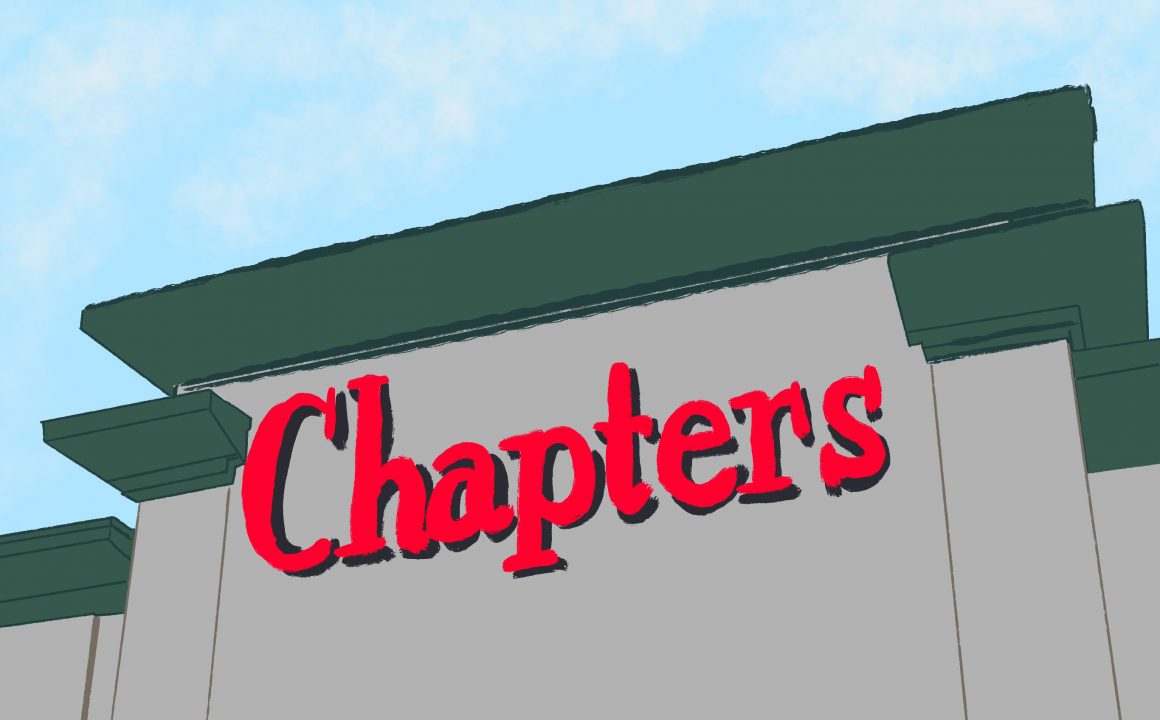
The Freedom Convoy controversy highlights the implications of monopolistic power
By Logan Jaspers, August 8 2022—
An article written by Jessica Mundie for the National Post on Indigo’s refusal to sell Andrew Lawton’s book The Freedom Convoy generated animated discussion. The responses range from smugly congratulating Indigo for refusing to sell a book sympathetic to the protest, to outraged calls to boycott Indigo for their perceived censorship. The litany of incensed tweets includes Conservative Party leadership candidate Roman Baber condemning Indigo for censoring the history of “a national movement that captured the hearts of millions.”
Expecting thoughtful discussion on an intellectual bottomless pit like Twitter is a fool’s errand, but most replies — of both the supportive and affronted varieties — are addled with misconceptions.
For a start, Indigo is selling the book, just digitally. If Indigo is making some principled stand against the convoy, those principles anticlimactically end online. Indigo attributed not selling The Freedom Convoy in-store to a lack of space, as they carry 15 million titles. The talk of Indigo refusing to sell a book contrary to their values is projection from their cheerleaders.
Likewise, censorship is a word loaded with authoritarian connotations, like frenetic book burnings or the sycophantic condemnation of books as forbidden knowledge. This imagery does not describe the fate of The Freedom Convoy. There was no state intervention, only a private company exercising its freedom not to sell a book in-store.
If Andrew Lawton and his book were the victim of an authoritarian clampdown, then his book wouldn’t be available on Indigo’s website, on Amazon or from Sutherland House — the book’s publisher. It also wouldn’t have topped Amazon, the Globe and Mail and the Toronto Star’s bestseller lists.
Yet, even if Indigo’s choice not to sell The Freedom Convoy in stores is distinct from state action, it’s still troubling in how it highlights corporate power. Just as feared at the time, Indigo’s purchase of Chapters in 2001 led to their domination of the Canadian book market.
Unlike many independent bookstores, Indigo survived Amazon’s explosive growth. Indigo’s monopoly is so institutionalized in Canada that when the pandemic threatened bookstores worldwide in 2020 — signalled by Indigo furloughing most of its employees at the outset of lockdowns — the company survived by doubling their revenue from digital sales, suffering only a small reduction in revenues. However, online revenue, both in real terms and as a percentage, slightly decreased in 2022 as physical sales returned triumphantly.
Indigo’s recent financial history illustrates two things — that Canadians are loyal customers to Indigo and that while online sales now are more significant to Indigo’s bottom line than they were two years ago, most books are still sold in-person. A book sold at physical stores will likely sell better than those sold exclusively online.
Kenneth Whyte, the founder and publishing executive of Sutherland House, said he was surprised that Indigo decided to not sell The Freedom Convoy in stores, pointing to a “good relationship” between Indigo and the company. Indeed, per Indigo’s website, most books published by Sutherland House have been sold in stores, including overtly political books by right-wing figures like Do Something! by Preston Manning and The Canadian Manifesto by Conrad Black.
Comparably, in 2006, Indigo refused to sell an edition of Harper’s Magazine that contained illustrations of the Prophet Muhammad despite Indigo normally carrying the magazine. They made this decision not because of any principles or a lack of sales, but because they did not want to experience backlash with their young, urban and therefore likely progressive customer base, like with The Freedom Convoy today.
As a profit-maximizing corporation, the most likely reason Indigo isn’t selling an already-bestselling book at stores is because of its acutely controversial content rather than a lack of space. With the convoy fresh in Canadian minds, Indigo is toeing a cautious, cynical line by profiting from Lawton’s book online while trying to not associate their brand with it. As books sell better in-person and Indigo is the only major Canadian book physical retailer, then there is no competition that incentivizes Indigo to sell the book in-person. This complacency means Indigo feels they can make contentious decisions without losing business — who else will Canadians go to for books?
Indigo is a private company that sells what they want, how they want to. Likewise, The Freedom Convoy is already a bestseller without being sold physically and those who want to buy it can do so online. However, Indigo’s stranglehold of the Canadian book market means they control the accessibility of books to Canadians without oversight. If one is uncomfortable with government censorship — the government being nominally responsive to the public — then an unaccountable corporate hegemon choosing to limit the accessibility of a book is concerning for freedom of speech as well.
This article is part of our Opinions section.
